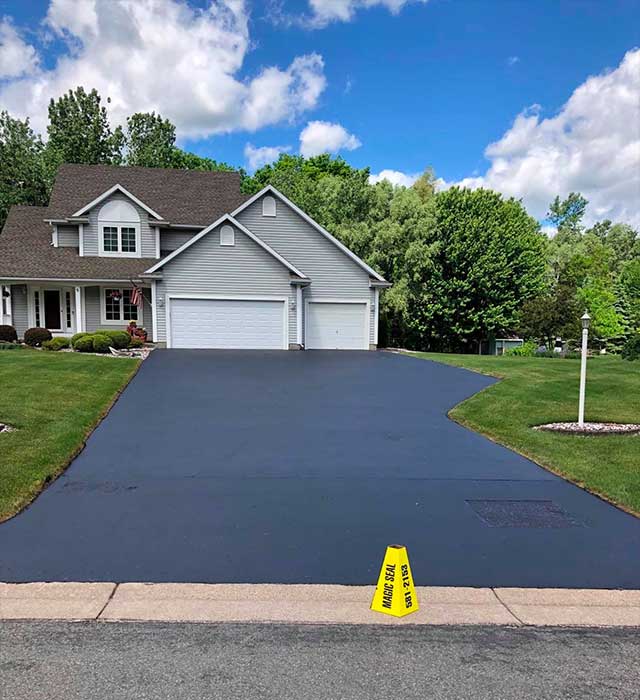Improve Durability with Cold Mix Asphalt: Expert Sealing Solutions
Improve Durability with Cold Mix Asphalt: Expert Sealing Solutions
Blog Article
Cold Mix Asphalt Vs. Hot Mix Asphalt: Which Is Right for You?

Composition Distinctions
Cold mix and hot mix asphalts differ significantly in their structure, with distinct features that impact their performance and applications. Cold mix asphalt is generated by emulsifying the asphalt binder with water and an emulsifying agent prior to mixing it with accumulation. This approach permits the asphalt to be practical at lower temperature levels, making it excellent for momentary repairs and for use in chillier climate condition. Hot mix asphalt, on the other hand, is manufactured at heats, typically between 300-350 ° F, which aids to accomplish much better compaction and a more long lasting final item. The hot mix asphalt production procedure entails warming the aggregate and asphalt binder individually prior to incorporating them at the asphalt plant.
Additionally, chilly mix asphalt has a tendency to be less dense and much more versatile than hot mix asphalt. This versatility makes it far better suited for areas with higher degrees of activity, such as driveways or roadways with rush hour. On the other hand, hot mix asphalt is understood for its high longevity and resistance to rutting and fracturing, making it a recommended selection for freeways and high-traffic roads where longevity is crucial.
Installation Refine Variations
The process of installing cold mix and warm mix asphalt displays noteworthy variances in their procedures and needs. Cold mix asphalt, being a more adaptable product, can be applied directly from the bag or container onto the pit or harmed area. It needs minimal preparation job, such as cleaning up the location and condensing the cool combine with hand devices. This makes it a hassle-free choice for temporary and quick solutions. On the other hand, warm mix asphalt demands a more elaborate installment process. It entails heating up the mixture to heats before laying it down on a properly ready base. The preparation consists of compacting the base, using a tack coat, and utilizing heavy equipment like pavers and compactors for a smooth and resilient surface. As a result of the heating needs, hot mix asphalt setups are usually performed by experts with customized equipment, making certain a more irreversible and structurally sound result.
Durability and Long Life Elements
When thinking about asphalt alternatives, durability and longevity are important variables to review for lasting pavement performance. Hot mix asphalt (HMA) is known for its remarkable sturdiness and durability. The high temperatures during the mixing and laying process permit better compaction, resulting in a learn this here now denser and hop over to these guys more powerful sidewalk structure. This results in HMA being much more resistant to hefty website traffic tons, extreme weather, and the effects of maturing compared to cold mix asphalt (CMA)
In regards to longevity, HMA commonly outshines CMA because of its superior toughness and resistance properties. HMA sidewalks have a longer life span, calling for less constant repair work and upkeep, which can convert to cost financial savings in the future. In addition, HMA pavements are a lot more easily adjustable to meet details job needs, additionally enhancing their toughness.
Cost Factors To Consider
Taking into consideration the financial implications is an essential aspect when assessing the option between hot mix asphalt (HMA) and cold mix asphalt (CMA) for sidewalk tasks. While the first price of warm mix asphalt is generally greater than that her response of cool mix asphalt, HMA usually gives a more affordable service in the lengthy run due to its exceptional resilience and durability.
In addition to product costs, it's necessary to consider the costs linked with installation and upkeep when contrasting HMA and CMA. Ultimately, the decision in between HMA and CMA ought to take into account not simply the preliminary expense however likewise the long-term financial effects to figure out the most affordable choice for the certain pavement job.
Environmental Impact Comparison
Contrast of the ecological effects in between hot mix asphalt (HMA) and chilly mix asphalt (CMA) exposes unique differences in sustainability methods. HMA production requires high temperatures, leading to enhanced energy consumption and greenhouse gas emissions.
Additionally, the usage of CMA usually involves recycling existing asphalt pavement, promoting resource preservation and decreasing the amount of waste sent to landfills. This recycling aspect further enhances the sustainability of CMA compared to HMA. Overall, when considering the environmental impact, CMA becomes an extra eco lasting option due to its lower power needs, minimized exhausts, and the capacity for recycling existing products. By deciding for CMA over HMA, road building and construction jobs can contribute positively to ecological conservation initiatives.
Verdict
Finally, the choice in between cool mix asphalt (CMA) and warm mix asphalt (HMA) depends on numerous factors such as structure, installment process, toughness, longevity, expense, and ecological influence. angle parking. While CMA provides a economical and fast solution for minor repair services, HMA ensures exceptional toughness and longevity for rush hour locations. Take into consideration these factors thoroughly to figure out which kind of asphalt is the appropriate choice for your paving needs

Considering the monetary effects is a vital facet when assessing the selection between hot mix asphalt (HMA) and chilly mix asphalt (CMA) for sidewalk jobs. While the initial expense of warm mix asphalt is commonly higher than that of cold mix asphalt, HMA commonly provides a much more cost-effective solution in the long run due to its premium longevity and longevity. asphalt patch repair.Contrast of the environmental impacts between warm mix asphalt (HMA) and cool mix asphalt (CMA) discloses distinct differences in sustainability practices.In final thought, the option in between cool mix asphalt (CMA) and warm mix asphalt (HMA) depends on various factors such as structure, setup process, toughness, long life, price, and ecological impact
Report this page